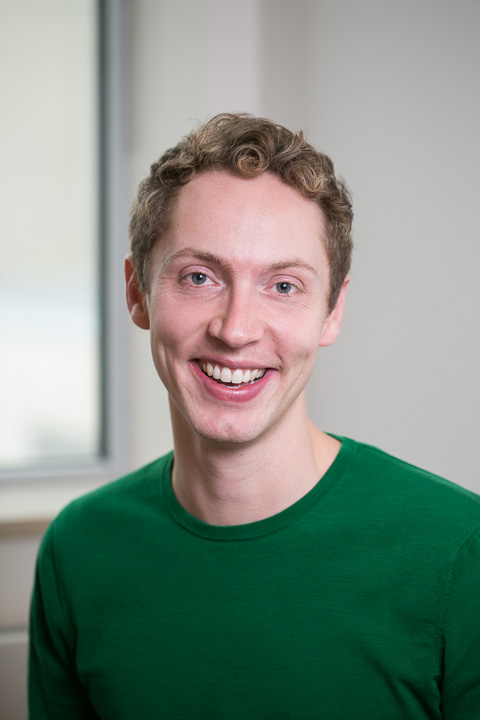Dr. Joshua Wales
Role at the CentreHome-care doctor Year started at the Centre2016 Shares a practice withDr. Mike Anderson | Dr. Joshua Wales carries himself with confidence and ease. It’s in the way he sits, the way he greets you when he enters the room, the way he holds himself. He exudes this easy grace, this friendliness. He’s unique in the palliative care world - a physician who trained as an opera singer. I wonder aloud why he made the switch, and having done so, how he’s coping in this very different world. His response is typically frank: “Opera’s a beautiful art form. I love singing. I still sing, but the business is a different thing. It requires an inward focus on yourself and your craft. I was constantly being distracted by other interests. I wanted to broaden the things I could explore academically. I was looking for a career that required a certain amount of critical thinking, a career which required more social interaction. I thought medicine would be a good fit.” Josh studied medicine at McMaster. But, I ask, why palliative care? “When I did a palliative care rotation at medical school it was the first time I felt like I was encouraged to actually sit down and listen to someone telling me about their life. I realized it was my job to find out what’s important to patients, what excites them, what they’re anxious about. It was refreshing. I was really drawn to it. I got into medicine because I wanted to talk to people and get to know them. That’s what I liked about palliative care. It’s a very intimate time, a very emotionally heightened time. The things people tell you are really profound. I’m always getting life advice or hearing about people’s regrets and the things they’re proud of. That gives me perspective into my own life because what’s important really comes into focus as you approach the end of life. You contemplate your mortality, your legacy, the totality of your experiences. It’s been really rewarding.” Josh joined the Latner Centre full time in July 2016, although he spent eight months working here during his medical training. I ask him if he’s found it challenging. “The most challenging thing for me is setting emotional boundaries. Every patient experience is so particular and so important and intimate. Being present and being available to patients but not allowing it to take over my life has been a bit of a challenge and one that I’m still learning to balance.” Josh is not alone; other doctors at the Centre have mentioned the same challenge. “These are really important times in someone’s life and, you really want to honour that as best you can. You put yourself in their shoes and you say what would I want my doctor to do when I’m dying or when my loved one is dying. That’s the kind of doctor that I want to be but it’s sometimes hard to find balance.” A lot of the physicians at the Centre cope with the stresses of the job through meditation, running, or some other physical activity. Joshua decompresses by singing. “I get home and I sing loudly. I don’t know what it is physiologically, but I feel my stress in my chest, and that’s the same place that when you sing you feel the most resonance. So there’s something physiological about singing and something therapeutic in the vibrations that for me feels amazing and really allows me to cope with all of the complex stresses and emotions of this work.“ The final question in these interviews is always the “magic wand” question. The thing he’d change is to grant everybody’s wish to stay at home for treatment. “One of the hardest parts of my job is when someone wants to stay at home to die but there’s something that limits that. Often it’s support. I think if people were to have as much support at home as they needed, like personal support workers and nursing, it would be so much better. It would also be cost effective. I’d make it more equitable, because we know that people who are of lower socio-economic status die at home less frequently. A lot of that is about the care they can afford and also the network they can rally around.” |





